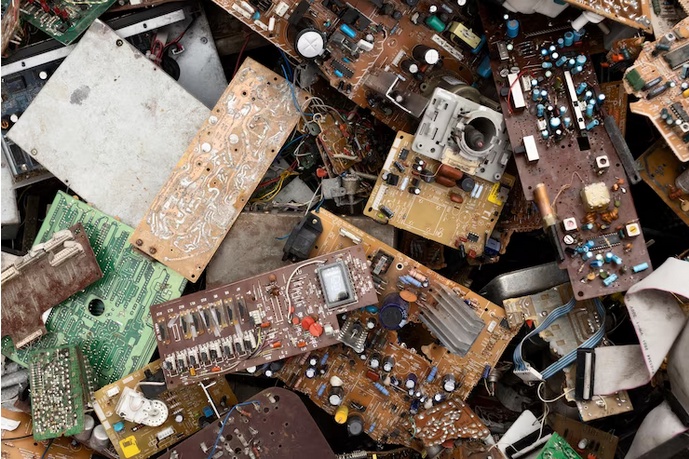Batteries have become an integral part of modern life, powering everything from our smartphones to our cars. They provide the portable energy needed to keep our devices running smoothly, but what happens when these batteries reach the end of their life cycle? Unfortunately, improper disposal of old batteries is a widespread issue that poses significant environmental risks. The environmental impact of improper old battery disposal is a pressing concern that demands attention and action.
The Problem with Old Batteries
Batteries, particularly those with toxic components, are classified as hazardous waste when they are no longer functional. This designation is due to the potentially harmful materials they contain, including heavy metals like lead, cadmium, and mercury. When old batteries are discarded in a careless manner, several environmental problems arise:
-
Soil Contamination: Batteries often end up in landfills where their casings can corrode over time, releasing harmful chemicals into the soil. These contaminants can then leach into groundwater, posing a risk to both the environment and human health.
-
Water Pollution: Leaching from batteries in landfills can contaminate nearby bodies of water. This pollution can harm aquatic ecosystems and disrupt local wildlife.
-
Air Pollution: When old batteries are incinerated, as is sometimes the case with municipal waste, toxic fumes containing heavy metals and other harmful substances are released into the atmosphere. This can contribute to air pollution and have adverse effects on air quality.
-
Resource Depletion: Batteries contain valuable resources like lithium, cobalt, and nickel. When they are not recycled, these resources are lost, leading to increased demand for mining and resource extraction.
The Toxic Components of Batteries
Understanding the environmental impact of old battery disposal requires examining the toxic components within different types of batteries:
-
Lead-Acid Batteries: Lead-acid batteries, commonly found in cars and uninterruptible power supplies (UPS), contain lead and sulfuric acid. Lead is highly toxic, and when it enters the environment, it can accumulate in soil and water, posing a risk to plants, animals, and humans.
-
Ni-Cd Batteries: Nickel-cadmium (Ni-Cd) batteries contain cadmium, a highly toxic heavy metal. Cadmium can cause harm to ecosystems and is a known carcinogen.
-
Alkaline Batteries: While alkaline batteries no longer contain mercury, they still have environmental impacts due to their other components, such as manganese dioxide and zinc. These materials can be harmful when released into the environment.
-
Lithium-ion Batteries: Lithium-ion batteries, used in many consumer electronics and electric vehicles, contain valuable resources like lithium, cobalt, and nickel. Improper disposal of these batteries results in the loss of these resources and contributes to resource depletion.
The Importance of Proper Battery Recycling
To mitigate the environmental impact of old battery disposal, proper recycling is essential. Battery recycling involves safely and responsibly processing old batteries to recover valuable materials and prevent the release of toxic substances into the environment. Here's why proper battery recycling matters:
-
Resource Conservation: Recycling batteries allows for the recovery of valuable materials like lithium, cobalt, and nickel. These resources can be used in the production of new batteries, reducing the need for mining and resource extraction.
-
Reduced Toxic Leaching: Proper recycling ensures that toxic components within batteries are contained and do not leach into the soil or water, preventing contamination and harm to ecosystems.
-
Energy Efficiency: Recycling batteries consumes significantly less energy than producing new ones from raw materials. This energy efficiency contributes to reduced greenhouse gas emissions and a smaller carbon footprint.
-
Economic Benefits: Battery recycling creates jobs and economic opportunities. It's not just an environmentally responsible practice; it's a growing industry with the potential for substantial economic benefits.
Challenges in Battery Recycling
Despite the clear benefits of battery recycling, several challenges hinder its widespread adoption:
-
Consumer Awareness: Many consumers are unaware of the importance of recycling batteries and the availability of recycling facilities. Raising awareness is essential to increasing recycling rates.
-
Infrastructure: Some regions lack the necessary infrastructure for convenient battery recycling. Expanding recycling collection points and facilities is crucial.
-
Battery Diversity: Different types of batteries require specific recycling processes, which can be complex and expensive. Developing efficient recycling technologies for various battery chemistries is an ongoing challenge.
The Role of Regulations and Industry Initiatives
To address these challenges and promote proper battery recycling, both regulations and industry initiatives play a vital role:
-
Regulations: Governments and regulatory bodies should establish clear guidelines and standards for battery recycling, ensuring safe and environmentally responsible practices. They can also implement extended producer responsibility (EPR) programs that make manufacturers responsible for the proper disposal and recycling of their products.
-
Consumer Education: Educating consumers about the importance of battery recycling and providing easily accessible collection points can significantly increase recycling rates.
-
Industry Collaboration: Battery manufacturers and industry stakeholders can collaborate to develop and implement efficient recycling technologies and processes. This includes designing batteries with recyclability in mind from the outset.
Conclusion
The environmental impact of improper old battery disposal is a critical issue that must be addressed for the sake of our planet's health and sustainability. To reduce the harm caused by batteries when they are improperly discarded, it is imperative to prioritize proper recycling practices.
Battery recycling not only conserves valuable resources but also prevents soil and water contamination, reduces air pollution, and promotes economic growth through job creation. However, addressing this issue requires a concerted effort from consumers, industry stakeholders, and governments.
By raising awareness about the importance of battery recycling, expanding recycling infrastructure, and implementing regulations and industry initiatives, we can make significant strides toward minimizing the environmental impact of old battery disposal. As we continue to rely on batteries for our energy needs, ensuring their proper and responsible disposal is a vital step in protecting our environment for future generations.


No comments yet